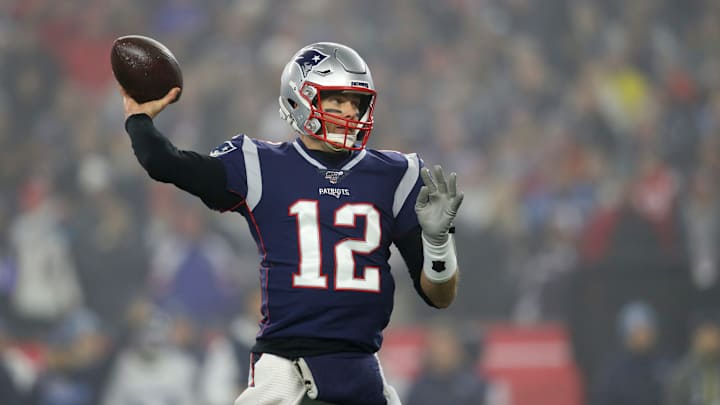The Case Against Tom Brady to the Bucs

As thinkable as it might seem, six-time Super Bowl champion quarterback Tom Brady could very well play for a team besides the New England Patriots next season. If Bruce Arians and Jason Licht get their way, Brady's next team could be the Tampa Bay Buccaneers.
That would be a terrible idea.
This is not to say Brady was not a great quarterback. He might be the best ever. He just should not be the Bucs' quarterback in 2020.
The biggest issue is Brady's age. He will be 43 years old by the time 2020 season begins, making him the oldest quarterback in the NFL. No one eludes Father Time forever. The likelihood that Brady's play will deteriorate increases every year he remains in the league.
Brady was a fine passer in 2019, throwing for 4057 yards, 24 touchdowns and eight interceptions. However, he was the least efficient he has been in a long time.
In 2019, Brady completed 60.3 percent of his passes, averaged 6.6 yards per attempt and threw a touchdown on 1.3 percent of pass attempts, all lows since his 2013 season.
While Brady was not surrounded with the best offensive talent last year, it was clear he had lost some zip on his throws and was less willing to take shots down the field.
That will be a problem if the trend were to continue in Tampa Bay. Last year, the Bucs saw Jameis Winston throw for 5109 yards, 33 touchdowns and 30 interceptions. While his extraordinary turnover count was a justifiable source of criticism, Winston was still one of the NFL's most prolific passers in 2019.
Winston had the second-highest intended air yards (10.4) and completed air yards (5.5) per attempt among all NFL quarterbacks last year. He also had the seventh-overall touchdown per attempt percentage (5.3). These stats paint the picture of an aggressive and explosive pass offense led by Winston.
By comparison, Brady had one of the lowest intended (7.7) and completed (3.6) air yards per attempt in the NFL. While the Patriots did not have the quality receiving weapons the Bucs had, Brady demonstrated he cannot manufacture downfield throws, the hallmark of a Bruce Arians offense.
Generally, Brady is a poor fit for the Bucs strategically. At his age and at this stage in his career, Brady is a "win-now" quarterback. His body is a ticking time bomb of decrepitude. The Bucs cannot bank on him as a long-term solution under center.
The next logical question then becomes, "are the Bucs ready to win now?" Bruce Arians seems to think so, but the answer is not so simple.
Yes, the Bucs defense rose to the occasion in the latter half of last season, but overall they remain quite young, particularly in the secondary. Tampa's front seven have five starters and significant rotational players slated to hit free agency, including all three of their top edge rushers.
Paying Tom Brady could severely limit who the Bucs could re-sign on defense or sign as a free agent. Before the 2019 season, Brady renegotiated his contract with the Patriots that gave him a one-year, $21 million cap number in 2019, but with the signing bonus, he was essentially paid $35 million for one year.
The Bucs should not expect to pay less than that. Every dollar spent on Brady is that much the Bucs cannot spend on fielding a championship-caliber defense, which is an under-appreciated aspect of each successful New England Super Bowl run in the past 20 years.
The notion that Tom Brady might be the greatest quarterback in NFL history should not be the reason the Bucs sign him in 2020. The risks and costs of signing him are too likely to lead Tampa Bay a familiar downtrodden path.
